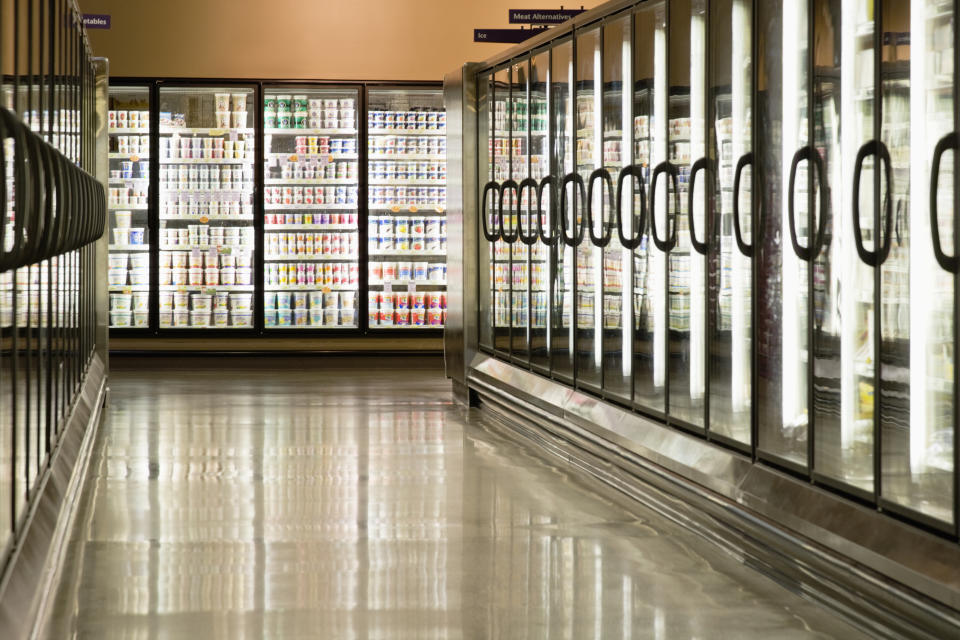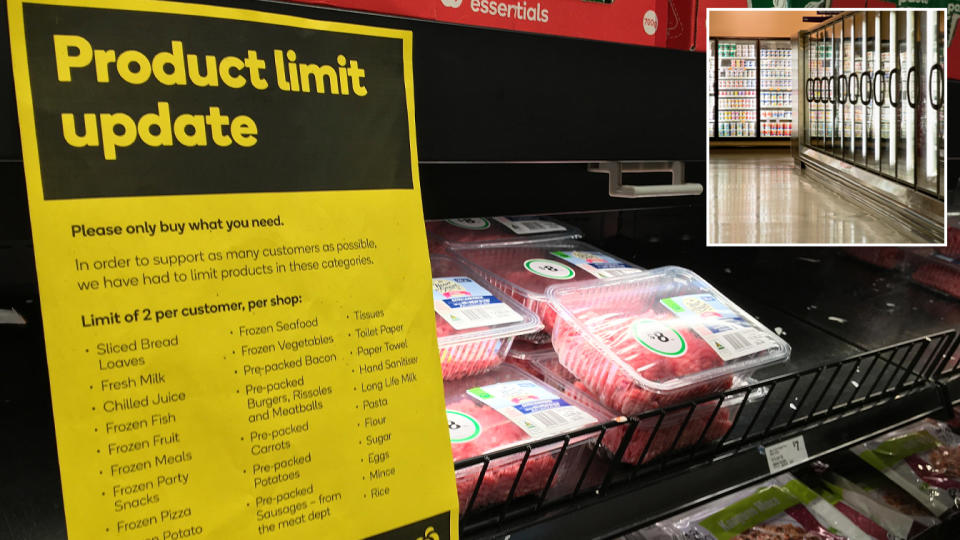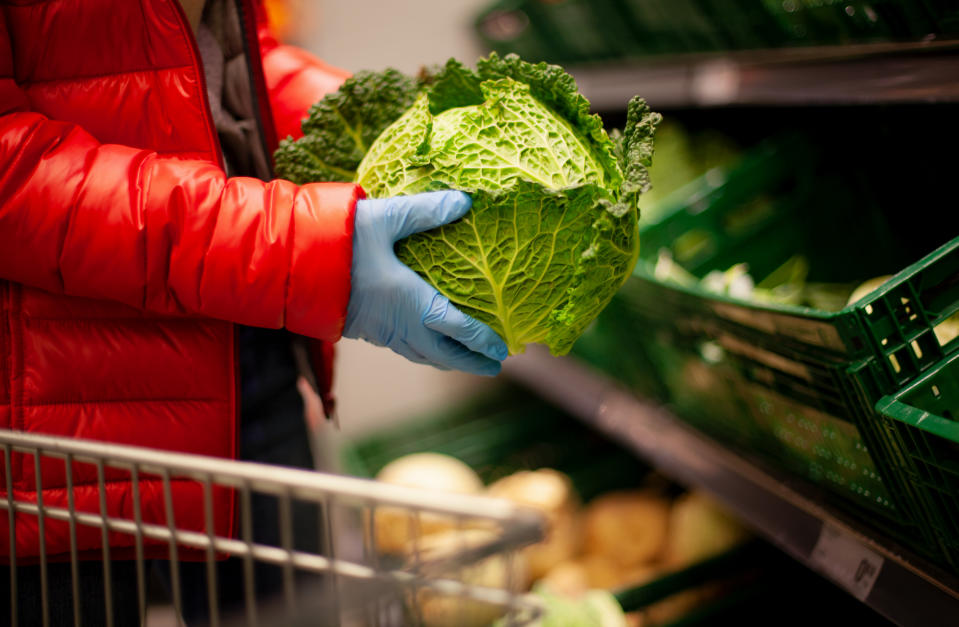What is the link between coronavirus and food?
Two events in the past week have caused experts to question whether we should be worried about the possibility of catching coronavirus through food.
Firstly, there were reports that the second breakout of COVID in New Zealand came from imported frozen food.
Secondly, some frozen chicken wings that were imported to China from Brazil were shown to test positive to coronavirus.
So, what do we know so far about the links between food and coronavirus?

Experts believe coronavirus can’t be transmitted via food
World Health Organisation’s head of emergencies, Mike Ryan, said “there is no evidence that food or the food chain is participating in transmission of this virus.”
“People should feel comfortable and safe.... People should not fear food, or food packaging or processing or delivery of food.
“There is no evidence to date of viruses that cause respiratory illnesses being transmitted via food or food packaging. Coronaviruses cannot multiply in food; they need an animal or human host to multiply.”
The Australian Food Standards Agency say: “COVID-19 is a respiratory disease spreading from person to person. It’s not a food-borne disease. There’s no evidence to suggest people will get infected by swallowing the virus in, or on, food or drink.

WHO have been investigating possible link for months
The first COVID cases are believed to have come from animal products at the Huanan seafood market in Wuhan, China.
“There have not been any reports of transmission through food. However, concerns [have been] expressed about the potential for these viruses to persist on raw foods of animal origin,” WHO said in February.
“As a general rule, the consumption of raw or undercooked animal products should be avoided.
“Raw meat, raw milk or raw animal organs should be handled with care to avoid cross-contamination with uncooked foods.”

Cold conditions can help coronavirus live
Some viruses can survive up to two years at temperatures of -20C, and coronavirus can survive on the surface of frozen food for up to three months, according to Chief Epidemiologist of China's Centre for Diseases Prevention and Control, Wu Zunyou.
The virus’ ability to live in cold conditions potentially explains why there have been several outbreaks at meatpacking plants.
Coronavirus: Is it still safe to order food on Uber Eats, Deliveroo and Menulog?
Coronavirus and food: CSIRO addresses some unexpected questions
Coronavirus: When and where you need to wear a mask in Australia
It also adds credence to the theory that New Zealand’s second COVID outbreak may have originated from frozen food that was freighted into the country.
One of the workers in the cold store tested positive, despite the fact he was wearing full PPE equipment, including gloves, as well as cold temperature clothing, including a freezer jacket and pants.
“We do know from studies overseas, that the virus can survive in some refrigerated environments for quite some time,” New Zealand director general of health, Dr Ashley Bloomfield, said.

If coronavirus is found in food, it might not be infectious
When the chicken wings imported to China from Brazil were found to test positive to coronavirus, officials sealed and tested all related products.
All were found negative. They also tested anyone who had come in to contact with the products – they also all tested negative.
It’s believed this is because the tests could have been picking up the genetic material of dead coronavirus, which has been known to cause false positives in people who have had previously had the virus.
'Two weeks of hell': Quarantine guest slams 'inedible' hotel food
'Vile' rumours circulate about NZ family at centre of coronavirus outbreak
'A life sentence': The frightening trend emerging in young coronavirus patients
Coronavirus heartbreak: 'I won’t see my parents for two years'

It’s probably not the food itself that’s contaminated
As well as the infected chicken wings, there have been seven other instances of the virus being found on imported food products to China, including shrimps from Ecuador.
But experts believe they were probably contaminated during packaging, rather than the food itself being contaminated.
"It is hard to say at which stage the frozen chicken got infected," a China-based official at a Brazilian meat exporter said.
In June, coronavirus was detected on a chopping board used to cut salmon, in Beijing’s wholesale market, Xinfandi.
This led to China stopping importing salmon from Europe.
However, it was later discovered there were no traces of COVID found in the salmon before the fish arrived in Beijing, and the virus most likely originated from somewhere inside the market rather than the fish itself.

It’s still important to follow general food safety guidelines
Although the advice is that you don’t need to worry about COVID transmission through food, you should still follow general food safety guidelines.
“Wash your hands for at least 20 seconds with soap and water after handling food or takeout containers,” the Food Safety Information Council chair, Cathy Moir, advises.
“Transfer food to a clean dish using clean utensils. Wash your hands again before eating.
“Remove containers, clean and disinfect any surfaces that had takeout containers on them.”
“Fresh fruit and vegetables should be washed under running water before you eat them. Don’t use hand sanitiser or body soap to clean produce as these may contain chemicals you don’t want to consume.”
“In the supermarket, don’t handle produce items and put them back for others. Don’t taste test items such as grapes, as this can mean you touch your mouth with your hands.”
“Shopping bags should not be placed on any food preparation benches to prevent contamination. Wash your hands immediately when you return home from shopping and again after putting away groceries.”
Do you have a story tip? Email: newsroomau@yahoonews.com.
You can also follow us on Facebook, Instagram and Twitter and download the Yahoo News app from the App Store or Google Play.




